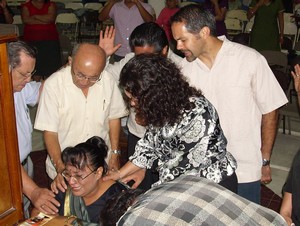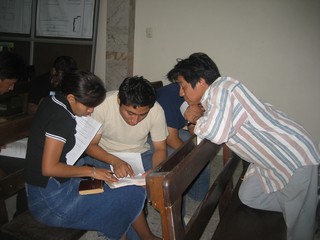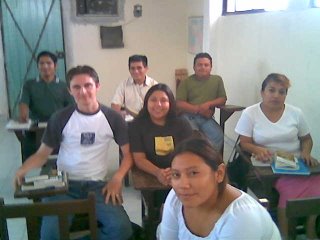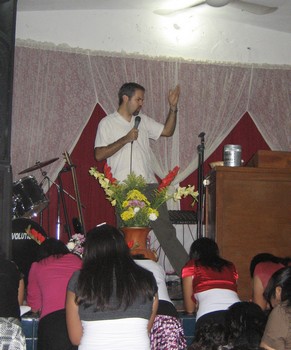
As Jesus sent out the 12 in Matthew 10, He gave them the motive for their ministry in verse 8: “Freely you have received, freely give. Their mission of mercy–healing the sick, casting out demons, and even raising the dead is the logical response to the mercy that they had already received in the form of God drawing near. They had seen Him, touched Him, and from Him received divine power. In Matthew 10, they are sent out to tell others about Him.
What Jesus modeled is the end of any discipleship program. He made disciples who in turn made disciples, and, here in the Yucatán, we had the privilege of seeing this cycle come full circle. This past Saturday night, the ministers and members of the Assemblies of God of Yucatán met to commission and send out Norma Uitzil, a missionary, born here in Yucatán, who will be ministering among the “Untouchables” of Calcutta, India.
Yucatán has freely received. Silverio Blanco, the director of the Bible Institute, took time during the service to tell of the first evangelical missionaries who arrived in 1866 to preach in what was then the inhospitable conditions of this predominately Maya state. Since that small beginning, many have come, Presbyterians, Baptists, and Pentecostals among others. In what was once an area devoid of believers, now roughly 1 in 10 attends an evangelical congregation. Granted, there is plenty of work to be done, but the work here in the Yucatán has entered a different stage. It is time for this district to take its place in the evangelization of the world, and missionary Norma Uitzil is one of the first to respond to that call.
About a year and a half ago, I spoke of Jaime and Jaqueline Chacon, missionaries from Costa Rica that are now serving in the U.S. I echoed in that post the words of our regional director, Dick Nicholson, who said that missions is no longer the U.S. or the traditionally Christian Nations that are sending missionaries to the ends of the earth; missions has become a movement in which God is calling people from everywhere to go to everywhere. We believe more than ever in that idea. To that effect, we are currently heading up the missions program in the church that we attend, and we are committed to continually preach missions in the various congregations in which we are invited to speak.
Some might say that it is an impossibility to promote missions in an area where the minimum wage is $5 a day, but people like Norma are proving that we serve a God who makes the impossible possible. So, as we were called forward to pray for her, I asked as well that God would begin to call others to respond to His world-wide mandate, that others would hear His heartbeat for the nations and dare to believe that they can make a difference. After all, freely we all have received, its only natural that we all freely give.







